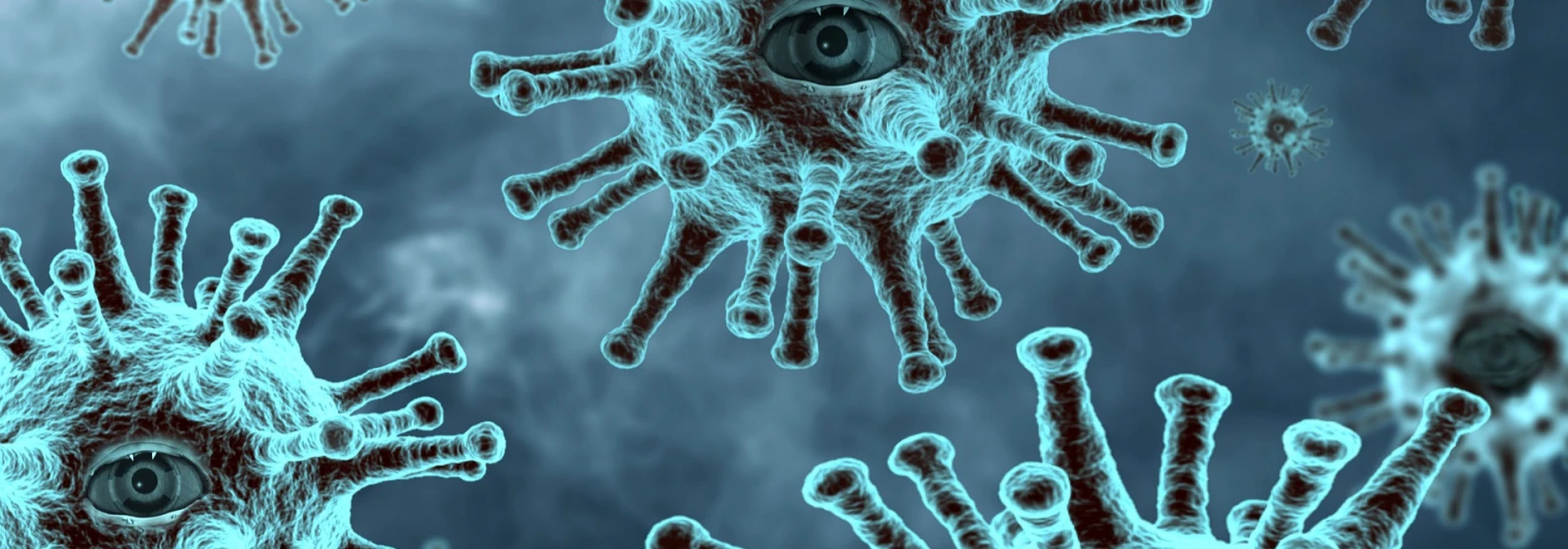Groundbreaking Research By Prof. Subhabrata Sen To Battle All Variants Of Covid-19
A hormone produced by a tiny organ in the human brain holds out hope of finding an answer to Covid-19.
Melatonin, a hormone secreted by the pineal gland in response to darkness, has cropped up as a candidate that could give succour to Covid-19 patients. It is the driving force for a team of researchers from India and France who are working on developing a novel molecule that could potentially emerge as a preventive against all variants of the Covid-19 virus (Sars-CoV-2), and thus prevent cases of acute respiratory distress syndrome (ARDS) that is detrimental to the lungs.

Subhabrata Sen, a chemistry professor in the Shiv Nadar Institution of Eminence, was working with the antiviral properties of melatonin when the Sars-CoV-2 pandemic reared its head in 2020. Melatonin has applications as an anti-viral and also has use in anti-cancer therapies.
Speaking to Business Standard, Sen said, “As the pandemic broke out, I started thinking is there a possibility that melatonin can be implicated for the Covid-19 virus also. Can we design a molecule that will work on specific receptors in our body?”
Over the last couple of years, Sen and his team have been working along with a group led by Ralf Jockers, a professor at Institut Cochin (INSERM, CNRS, Université Paris Cité, France), on the hypothesis and establishing the necessary biological screenings for this molecule.
Covid-19 is a complex disease with short-term as well as long-term respiratory, inflammatory and neurological symptoms that are triggered by the infection by Sars-CoV-2 virus.
“We aimed to explore a multi-target strategy. We synthesised and focused on a compound library based on indolealkylamine (a type of neurotransmitter that modulates human mood and behaviour) with the activity of three potential Covid19-related proteins — melatonin receptors,” Sen explained.
How is this approach useful? If one receptor fails, there is a possibility that other targets will work. The idea is to stop the entry of Sars-CoV-2 virus into host cells, and also decrease the replication of the virus.
In a study published in the European Journal of Medicinal Chemistry in March, the researchers indicated that they had enough reasons to be optimistic of a solution. “In conclusion, we provide a proof-of-concept for the successful design of multi-target compounds based on the tryptamine (a chemical compound) scaffold. Optimisation of these preliminary hit compounds could potentially provide drug candidates to treat Covid-19 and other coronavirus diseases,” they said.
Sen said that they had conducted initial trials in animals in Paris, and these had exhibited positive immunological response and no toxicity.
“Now we need to do further studies in animals and eventually humans. The cost of developing a novel molecule from the lab to the clinic is around Rs 200-500 crore. We are now looking to find investors, who can take this forward,” Sen said.
He added that the initial studies showed that the drug boosts immunological response by 30-40 times.
The researchers have so far spent around Rs 30-40 lakh on developing the molecule.
In an article titled “Can melatonin reduce the severity of Covid-19 pandemic?” researcher Alex Schneider and others (not linked to the Indo-French team) have said: “Children don’t suffer from Covid-19 as much as their grandparents and have a much higher melatonin level. Bats are nocturnal animals possessing high levels of melatonin, which may contribute to their high antiviral resistance.”
Viruses induce an explosion of inflammatory cytokines and reactive oxygen species, and melatonin is the best natural antioxidant that is lost with age, the researchers have said.
The programmed cell death coronaviruses cause, which can result in significant lung damage, is also inhibited by melatonin. Coronavirus causes inflammation in the lungs. Melatonin blocks these inflammasomes (molecules of the innate immune system responsible for activating inflammatory responses). “General immunity is impaired by anxiety and sleep deprivation. Melatonin improves sleep habits, reduces anxiety and stimulates immunity. Fibrosis may be the most dangerous complication after Covid-19. Melatonin is known to prevent fibrosis,” Schneider and his colleagues have said.
Counting on melatonin
- Melatonin hormone may have the answers to preventing acute respiratory distress in Covid-19
- Melatonin is a hormone secreted by the pineal gland in response to darkness
- It has applications as anti-viral and anti-cancer therapy
- Initial studies have shown this molecule boosts immune response 30-40 times
Courtesy: Business Standard
